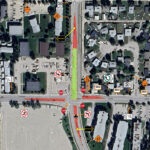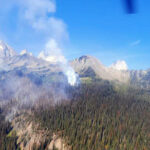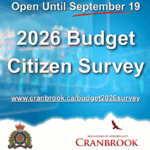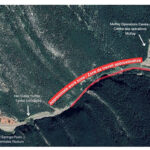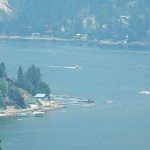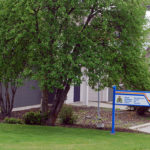Home »

Feedback requested on management of private forests
The public is invited to provide input on a program that helps to ensure the sustainable management of private forests in B.C.
“We want to hear from the public about whether there is room for improvement in the management of private forests and also whether the private managed forest land program is a benefit to private forest owners and the communities they live in,” said Doug Donaldson, Minister of Forests, Lands, Natural Resource Operations and Rural Development.
The Private Managed Forest Land Program was established in 2003 with the introduction of the Private Managed Forest Land Act.
Public input on the program is welcome until 4 p.m. on July 9. Feedback forms and more information are available at engage.gov.bc.ca.
The objectives of the review are to confirm the primary goals of the program, which are to encourage private landowners to manage their lands for long-term forest production and encourage sustainable forest management practices, including protecting key public environmental values. Government also wants to increase public awareness and understanding of the program.
The ministry will also meet directly with and accept written submissions from landowners, local government, First Nations and organizations and community groups that are directly impacted by activities on private managed forest land.
Of the 4.6 million hectares of private land in B.C., about 818,000 hectares – primarily located in the Kootenays and on southern Vancouver Island are managed as part of the Private Managed Forest Land Program and regulated under the Private Managed Forest Land Act and regulations.
Private forest owners participating in the private managed forest land program must comply with the Private Managed Forest Land Act and regulations, including protecting key environmental values.
“The Managed Forest Council is proud of our responsive role as regulators for private managed forest land, and we are pleased that a recent, multi-year review has resulted in regulatory amendments to more effectively protect drinking water quality on managed forest land,” said Rod Davis, chair of the Managed Forest Council. “The province’s review of the program will further ensure that the program is meeting the needs of managed forest owners, local communities and residents.”
“As private landowners that have subscribed to the Private Managed Forest Program, our members have voluntarily chosen to have forest management activities held to a higher standard,” said Megan Hanacek, chief executive officer of the Private Forest Landowners Association. “We hope that this review increases the public’s awareness and acceptance of the program, and our long-term commitment to sustainable management of forests and key public values.”
Information gathered as part of the review will be used by the ministry to examine how well the program is meeting its goals and whether any changes are necessary to maintain public confidence in the program. A summary report will be ready in fall
There is a clear distinction between what legislation, regulations, bylaws and oversight apply to timber harvested on private land versus the legislation, regulations, bylaws and oversight that is applied to private managed forest land (a property class assigned by the BC Assessment Authority). Awareness of a specific property’s class is integral to the context for how forestry activities on the property may be regulated.
All private landowners, regardless of property class, are subject to the Water Sustainability Act, Drinking Water Protection Act, Environmental Management Act, Wildlife Act, Assessment Act, Wildfire Act and federal acts such as the Fisheries Act, Migratory Birds Convention Act and Species at Risk Act.
Regulations governing private managed forest land are in addition to those for basic private forest landowners. The Private Managed Forest Land Act establishes management objectives for key public environmental values, including soil conservation, critical wildlife habitat, fish habitat, drinking water quality and reforestation.
The private managed forest land program is voluntary. Property owners receive a lower property tax rate from BC Assessment by participating in the program. Owners must also pay an annual administration fee to the Managed Forest Council and submit an annual declaration of forest management activities completed during the year. They also must pay an exit fee, should they leave the program before an initial 15-year commitment period.
In exchange for their commitment to long-term, sustainable management practices and required time in the program, private managed forest landowners receive assessed values for land that are generally lower than residential, which can result in lower property taxes.
Additionally, while local governments have the power to adopt bylaws that place restrictions on forest management activities on private land within regional or municipal boundaries – including aligning their bylaws with requirements equivalent to Crown forest land regulations under section 21 of the Private Managed Forest Land Act – private landowners with land in the private managed forest program have the right to harvest trees and are exempt from local government bylaws and permits that would directly or indirectly restrict a forest management activity.
e-KNOW
